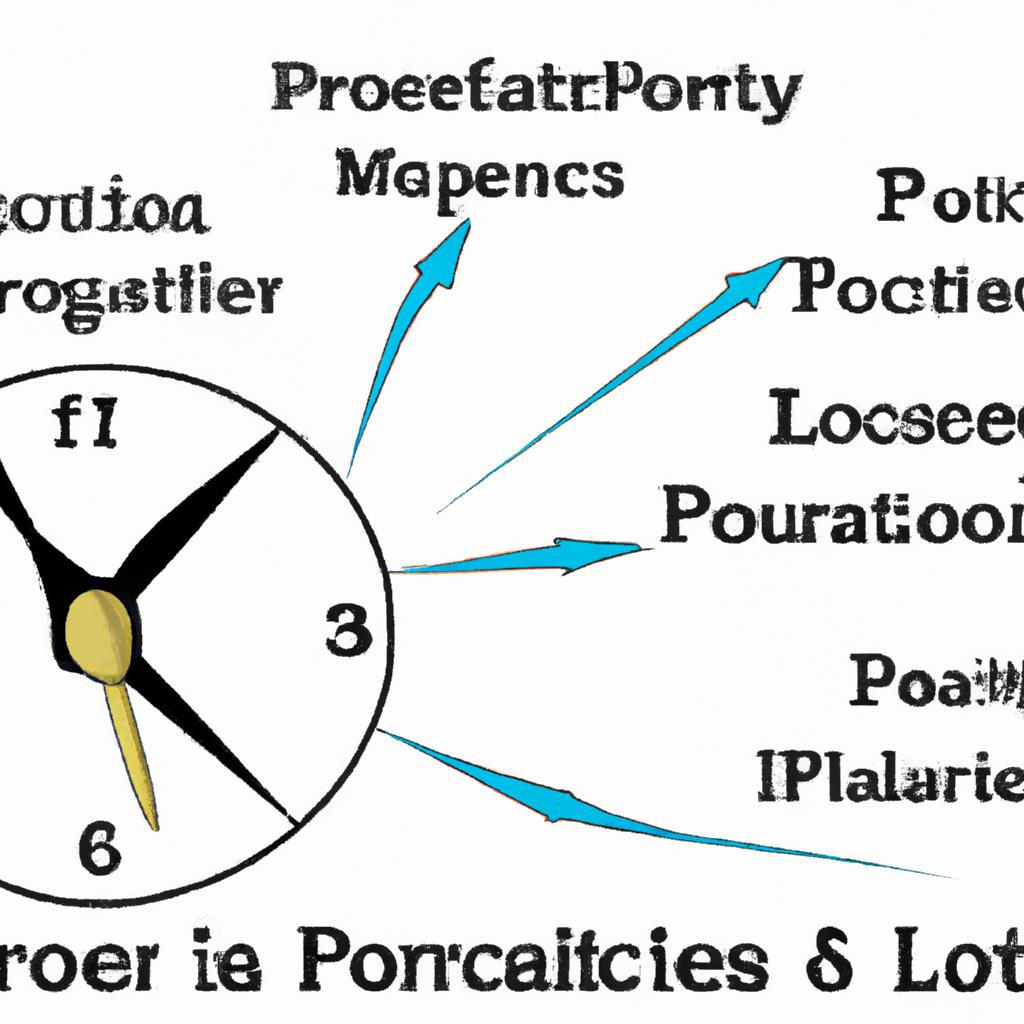Probate, a term that strikes fear and uncertainty in the hearts of many homeowners, is a necessary process that must be navigated when a loved one passes away. While the specifics of probate can vary greatly depending on the individual circumstances, one burning question that plagues many is: how long does it take for a house to go through probate? As seasoned experts in estate planning and probate law at Morgan Legal Group in New York City, we understand the complexities of the legal system and are here to shed light on this common concern. Join us as we delve into the intricate timeline of probate and offer guidance on how to navigate this often-daunting process with ease and clarity.
Understanding the Probate Process for Real Estate
In the world of real estate, the probate process can often feel like a long and tedious journey. When it comes to probating a house, the timeline can vary depending on a variety of factors. To give you a better understanding of how long it typically takes for a house to go through probate, here are some key points to consider:
- Complexity of the Estate: The complexity of the estate plays a significant role in how long probate will take. If the estate is straightforward with no disputes or complications, the process can be relatively quick. However, if there are multiple heirs, disputed claims, or other challenges, the process can be prolonged.
- Local Laws and Regulations: Each state has its own laws and regulations regarding probate, which can impact the timeline. In some states, probate can be completed in a matter of months, while in others, it can take years to finalize.

Factors Impacting the Length of Probate for a House
can vary depending on various circumstances surrounding the estate. One of the most significant factors is the complexity of the estate itself. If there are multiple properties, significant debts, or disputes among heirs, the probate process can be prolonged. Additionally, the availability of the court’s schedule and the efficiency of the executor can also impact the timeline.
Furthermore, the location of the property can influence the length of probate as different states have different probate laws and procedures. In some states, probate can be a lengthy process due to strict regulations, while in others, it may be more streamlined. Additionally, if the deceased did not leave a valid Will, the probate process can be further complicated and delayed as the court must determine the distribution of assets based on state laws. Contact Morgan Legal Group for expert guidance in navigating the probate process for a house in New York City.
| Factors | Impact |
|---|---|
| Complexity of the estate | Prolonged probate process |
| Court’s schedule | Timeline dependent on availability |
| Location of the property | State laws influence probate length |
| Valid Will | Significantly impacts probate process |

Strategies to Expedite Probate Proceedings for Real Property
When it comes to expediting probate proceedings for real property, there are several key strategies that can help streamline the process and minimize delays. One effective way to speed up probate for real property is to ensure that all necessary documentation is in order and filed promptly. This includes gathering and organizing all relevant paperwork, such as the deceased’s Will, property deeds, and any other related documents. By having these documents prepared and ready for submission, it can help prevent unnecessary delays and expedite the probate process.
Another strategy to expedite probate proceedings for real property is to work with an experienced probate attorney who can guide you through the process and help navigate any potential roadblocks. A skilled attorney can provide valuable insight and advice on how to best approach the probate process for real property, ensuring that all legal requirements are met and deadlines are adhered to. Additionally, an attorney can help facilitate communication between all parties involved, such as beneficiaries and creditors, to help move the probate process along smoothly and efficiently.

Consulting a Probate Attorney for Efficient Resolution
Probate is the legal process through which a deceased person’s assets are distributed to their heirs. One common question that arises during probate is how long it takes for a house to go through the process. Typically, the duration of probate varies depending on several factors, including the complexity of the estate, whether the deceased had a will, and if any disputes arise among the beneficiaries.
Consulting a probate attorney can help expedite the probate process and ensure efficient resolution. An experienced attorney can provide guidance, navigate through legal complexities, and assist in resolving any conflicts that may arise during the probate proceedings. Through proper legal representation, beneficiaries can avoid unnecessary delays and ensure a smooth transfer of the deceased’s assets.
Q&A
Q: How long does it typically take for a house to go through probate?
A: The length of time it takes for a house to go through probate can vary depending on a number of factors.
Q: What are some of the factors that can affect the length of the probate process for a house?
A: Factors such as the complexity of the estate, any disputes among heirs, and state laws can all impact the duration of the probate process.
Q: Are there any steps that can be taken to speed up the probate process for a house?
A: Working with an experienced probate attorney, ensuring all necessary documents are in order, and communicating effectively with all parties involved can help expedite the probate process.
Q: Is it possible for a house to bypass probate entirely?
A: Yes, it is possible to avoid the probate process for a house by establishing a living trust or ensuring that the property is jointly owned with rights of survivorship.
Q: Overall, what is the best way to navigate the probate process for a house?
A: The best way to navigate the probate process for a house is to seek guidance from a legal professional who specializes in probate law and to stay organized and proactive throughout the process.
The Conclusion
In conclusion, the length of time it takes for a house to go through probate can vary depending on multiple factors such as the complexity of the estate, state laws, and whether or not there are any disputes among beneficiaries. While the process may seem lengthy and daunting, it is important to be patient and trust in the legal system to ensure that the deceased’s assets are distributed in accordance with their wishes. Remember, seeking the guidance of a knowledgeable attorney can help expedite the process and provide peace of mind during this challenging time.

